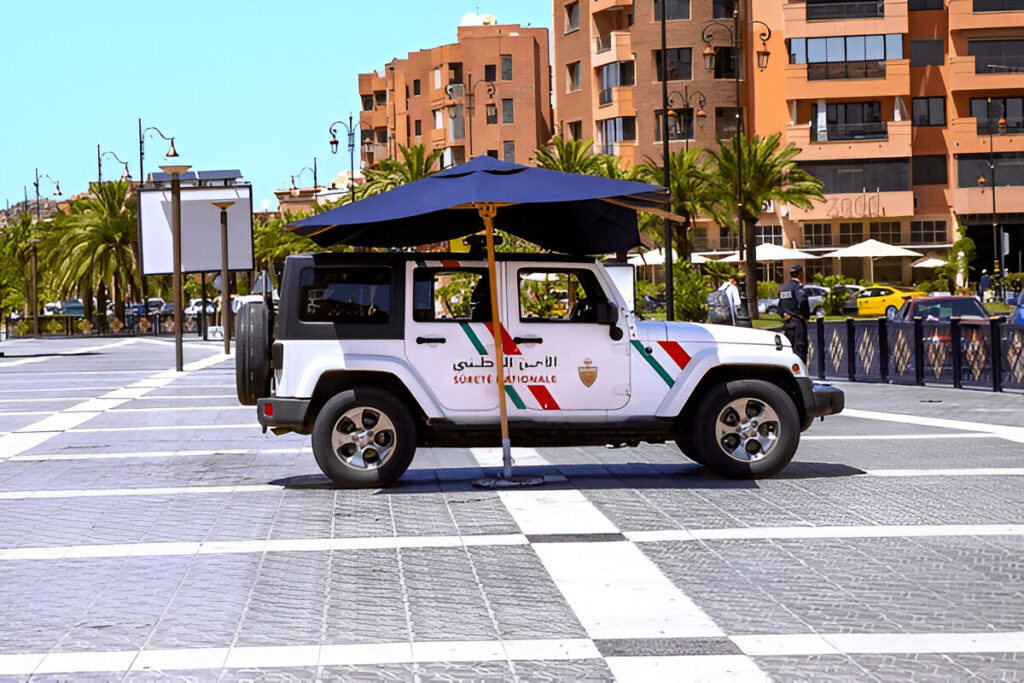
Travel Safety in Morocco: Essential Tips for a Worry-Free Trip
Travel Safety in Morocco is essential for anyone planning to explore its breathtaking landscapes and vibrant culture. While the journey is rewarding, ensuring your safety should be a top priority. This guide offers invaluable tips and insights to help you travel safely in Morocco, enabling you to fully enjoy your adventure without unnecessary worries.
Covering everything from Morocco’s safety landscape to cultural etiquette, this guide is tailored for both solo travelers and groups. You’ll discover how to navigate Morocco’s unique charm while prioritizing safety, no matter your travel plans.
Begin your journey with this essential guide to travel safety in Morocco. Learn how to explore the country’s stunning beauty, embrace its culture, and create unforgettable memories—all while staying safe.
Understanding Morocco’s Safety Landscape
When we talk about morocco security situation, we need to see the whole picture. Some areas might be riskier, but overall, Morocco is getting safer. The country has worked hard to keep everyone safe, locals and visitors alike.
Many think Morocco is unsafe everywhere. But most of the country is peaceful and open to tourists. The government fights terrorism well and works with other countries to keep things stable. Still, it’s smart for visitors to know what’s happening and be careful.
The morocco security situation changes based on where you are and when you visit. Some areas near borders or far from cities need more care. But places like Marrakech, Fez, and Casablanca are usually safe for tourists. By being alert, listening to local advice, and using common sense, you can enjoy Morocco’s culture safely.
Essential Pre-Trip Preparation for Morocco
Traveling to Morocco needs careful planning for a safe and fun trip. Before you go, learn about morocco travel precautions and morocco travel warnings. This helps you know what to expect.
Getting the right vaccinations is key. Talk to a doctor about what shots you need for Morocco. You might need vaccines for hepatitis A and B, typhoid, and COVID-19.
Also, get good travel insurance. Look for policies that cover medical issues, trip cancellations, and evacuations. This can help you relax and protect your money while exploring Morocco.
By doing your homework, getting vaccinated, and insuring yourself, you’re ready for Morocco. You’ll enjoy its culture and landscapes safely and make unforgettable memories.
Travel Safety in Morocco: What You Need to Know
Exploring Morocco’s vibrant cities and landscapes is thrilling. But, it’s key to stay safe. This section will give you the tips you need for a secure and fun morocco tourist safety trip.
In the busy medinas and souks, watch your stuff and don’t show off pricey items. Pickpocketing is a big issue, so use a money belt or a hidden wallet. Stay in well-lit, crowded places and be careful at night.
Public transport like buses and trains is cheap and handy. But, stay alert and keep your valuables near. Don’t travel alone at night. For safer trips, hire a trusted private driver.
Be careful with money, especially when exchanging or using ATMs. Use official banks or approved exchange places for fair rates and to avoid scams. Carry local cash for small buys and use cards for bigger deals.
Cultural Awareness and Respectful Behavior
Exploring Morocco travel advice means learning about local customs and etiquette. This knowledge is key for a safe and fun trip. Showing respect for Moroccan culture helps build connections and creates lasting memories.
One key morocco travel tip is to dress appropriately. In conservative Muslim areas, it’s wise to wear modest clothes. This means covering your shoulders and knees. Also, avoid clothes that are too revealing or ripped to blend in and avoid unwanted stares.
Social norms in Morocco are different from what you might be used to. Greetings, how to eat, and interactions with the opposite sex need careful thought. Learning common courtesies, like using your right hand for eating and not showing public affection, makes navigating these differences easier.
It’s also important to be aware of religious and cultural sensitivities. For example, avoid taking pictures in certain places or respect prayer times. This shows you care about the local culture and can win you friends.
Solo Female Travelers’ Guide to Morocco
Exploring Morocco’s beautiful landscapes is rewarding, but solo female travelers need to be careful. *Morocco’s culture and people are welcoming, but traveling alone as a woman requires careful planning.*
Dress modestly to avoid unwanted attention. Choose loose, covering clothes that respect local customs. *Stay alert and avoid isolated places, especially at night.* Trust your instincts and don’t walk alone if you feel scared.
Look for female-friendly hotels or riads (traditional guesthouses) that focus on solo female guests’ safety. *Talking to other female travelers online can help you find safe places to stay.*
Learn about local customs and etiquette to interact respectfully with Moroccans. Don’t engage with pushy touts or accept food/drinks from strangers without thinking. *By staying informed and aware, solo female travelers can enjoy Morocco’s magic while staying safe.*
Avoiding Common Tourist Scams
When you visit Morocco, knowing about tourist scams is key. Morocco’s tourist safety and travel precautions are vital for travelers. You can avoid scams like overpriced taxis and pushy vendors by being smart.
Watch out for scams where people offer “free” tours or items. They might try to sell you something or ask for a big tip. Just say no and keep moving.
Scammers might say they found your lost wallet or ring and ask for money. Don’t fall for it. If you really lost something, tell the police.
Some taxi drivers might say your hotel is closed to take you somewhere else. They might get a kickback. Always go to your original hotel or use a trusted taxi service.
By being careful and using some common sense, you can enjoy Morocco without worries. You’ll make memories that last a lifetime.
Health and Medical Safety Precautions
Getting ready for your Morocco travel means thinking about your health. Before you go, talk to your doctor about shots you might need. Shots for measles, mumps, and flu are usually a good idea. Your doctor might also suggest hepatitis A and typhoid shots, since they’re common in Morocco.
Remember, staying safe with food and water is key. Stick to bottled or purified water and avoid raw fruits and veggies unless you can wash them. Also, be careful with street food, as it might not be as clean as what you’re used to. Keep hand sanitizer and wet wipes handy to stay clean while exploring.
If you need medical help, know where to go. Look up good hospitals and clinics in your travel spots. It’s also smart to get travel insurance that covers medical costs. And, having a basic first-aid kit can help with small problems.
Safe Areas and Regions to Visit
When you plan to visit Morocco, safety is key. The country is mostly safe, but some places are better for tourists. Marrakech is a top choice, known for its lively medina, markets, and beautiful buildings.
Essaouira, a coastal city, is also safe. It has a beautiful harbor and old fort walls. The city’s calm vibe and welcoming people make it great for exploring Morocco’s culture safely.
Fes, in the north, is another safe spot. It’s filled with narrow alleys and historic sites. While you should be careful, especially in crowded spots, Fes is seen as a safe area.
However, areas near the Algerian and Saharan borders need extra care. The morocco security situation there is different. Always check the latest news and talk to local experts before you go.
Emergency Contacts and Important Resources
Exploring Morocco’s vibrant culture and stunning landscapes is exciting. But, it’s important to have emergency contacts and resources ready. This section gives you the key info to stay safe and enjoy your trip.
In emergencies, dial 150 in Morocco to reach the national police. You can also contact the U.S. Embassy in Rabat at +212 537 63 73 00. The British Embassy in Rabat is at +212 537 63 33 33. These places can help in tough times.
For the latest travel advisories, download the “Morocco Travel Smart” app. It’s available for iOS and Android. It sends alerts, safety info, and connects you to emergency services. Also, the U.S. Department of State’s “Smart Traveler” app helps track morocco risk assessment and travel safety in morocco.
FAQ
Q: What are the most important safety considerations when traveling to Morocco?
A: When visiting Morocco, stay alert and aware of your surroundings. Be careful with public transport and keep your valuables safe. It’s also key to respect local customs and etiquette.
Check the latest travel advisories and get the necessary vaccinations. Have a plan for healthcare if needed.
Q: Is Morocco a safe destination for solo female travelers?
A: Morocco can be safe for solo female travelers with some precautions. Dress modestly and avoid walking alone at night. Be careful of unwanted attention or harassment.
Choose accommodations that are female-friendly. Keep your valuables secure and discreet.
Q: What are some common tourist scams to watch out for in Morocco?
A: Watch out for fake tour guides and overcharging in Morocco. The “dropped wallet” trick is also common. Be cautious of strangers and always negotiate prices first.
Only use authorized tour operators and guides.
Q: What health and medical precautions should I take when traveling to Morocco?
A: Make sure your vaccinations are up-to-date before traveling to Morocco. Be careful with food and water. Get comprehensive travel insurance.
Research where to find medical care and have a plan for emergencies.
Q: Are there any areas in Morocco that are considered less safe for tourists?
A: While Morocco is generally safe, be cautious in areas near Algeria and Mauritania. Research current security advisories. Avoid areas with high risk or political instability.
Q: What should I do in case of an emergency while in Morocco?
A: In an emergency, have a plan ready. Know how to contact your embassy and have emergency numbers handy. Check your travel insurance coverage.
Familiarize yourself with the nearest hospitals or medical facilities.

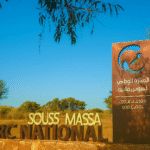


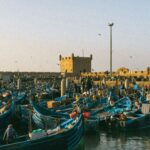




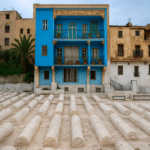
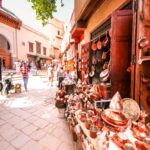
st james’s university hospital of Ulster student portal streamlines
access to resources.